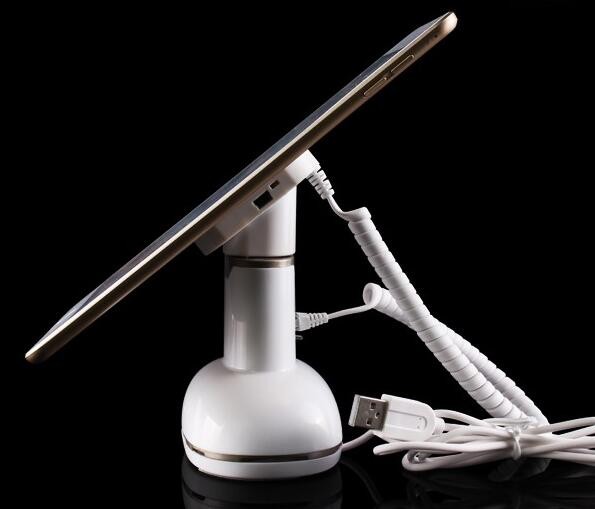Apple, Inc. has been silently removing the security cables that are usually attached to iPhones at the Apple Store. Without these cables, the risk of iPhones being stolen is obviously quite high, so why is Apple doing this?
Apparently, Apple isn’t too concerned about theft. They’re more worried about user experience. The company has come out saying that tethered iPhones aren’t convenient to try out. Shoppers can’t try out various cases, see how it feels in their pockets and so on. The risk factor is definitely there, but Apple clearly thinks it won’t be a problem.
But what about a shopper turning on Airplane Mode, disabling all connectivity and then slipping it into their pocket or bag and walking away with it. Airplane Mode doesn’t allow any signals to and from the device, so Find my Phone, WiFi, Bluetooth, Mobile Data – nothing will work. So how will it trigger the alarm in case the security cameras don’t capture an attempted theft? And what if none of the employees saw it happen?
One source says that it’s possible Apple has some sort of tracking program running in the background on the display pieces, one that cannot be turned off by a user. That’s definitely a possibility, but if the user turns the phone off, it’s almost impossible to track it.
How will this affect iPhone pilferage from Apple Stores?
Retailers have an abundance of security measures in place to stop pilferage and shop-lifting. These typically include RFID tags, security cameras, on-floor store detectives and so on. But at an Apple store you’re not likely to see a store detective or any other overt security measures. At the most, there will be a few security cameras and sensors at the door to set off alarms if display units are taken out.
So this does increase the chances that display piece will be stolen. It’s possible that Apple is ready to deal with this possible additional cost as a trade-off for customer experience. The longer a customer handles the merchandise, the more likely they are to buy it.
And it’s not just me saying this. A research study on this exact same phenomenon was conducted jointly by two universities. Here’s an excerpt from the study’s results:
“Researchers from Ohio State University and Illinois State University tested how touching an item before buying affects how much they are willing to pay for an item. A simple experiment with an inexpensive coffee mug revealed that in many cases, simply touching the coffee mug for a few seconds created an attachment that led people to pay more for the item.”
James Wolf, the lead author of the study, says this:
“By simply touching the mug and feeling it in their hands, many people begin to feel like the mug is, in fact, their mug. Once they begin to feel it is theirs, they are willing to go to greater lengths to keep it.”
If that can happen in the case of a cheap coffee mug, why not an expensive iPhone? Perhaps Apple feels that the security cable prevents people from feeling that emotion of possessiveness when they hold a phone in their hand.
The strange part is, they’re keeping the security cables on iPads and computers. Yup, that makes a lot of sense because everyone knows how easy it is to slip an iMac into your back pocket and breeze out of the store, right?
Thanks for reading our work! Please bookmark 1redDrop.com to keep tabs on the hottest, most happening tech and business news from around the world.



